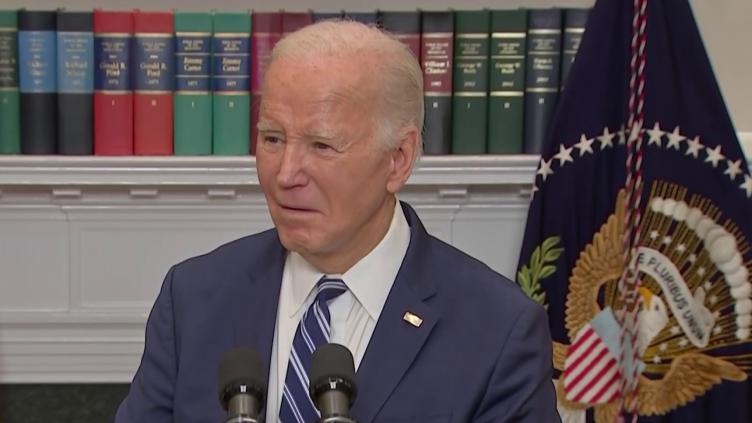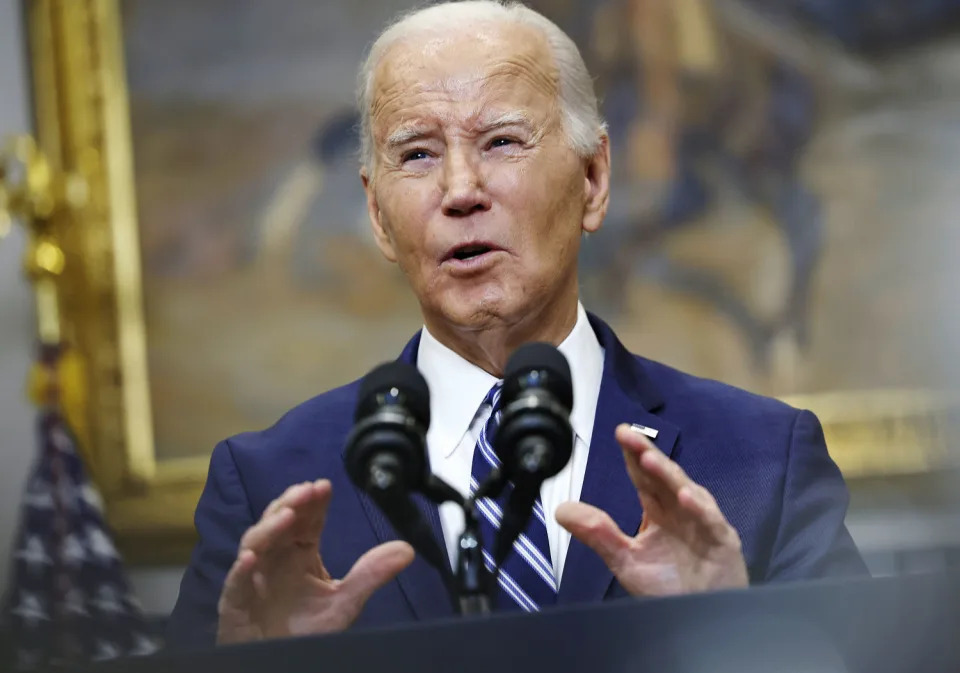Associated Press
Ukraine’s Zelenskyy warns of an ‘artificial deficit’ of weapons after withdrawal from Avdiivka
Geir Moulson and Kerstin Sopke – February 17, 2024





MUNICH (AP) — Ukrainian President Volodymyr Zelenskyy warned allies Saturday that an “artificial deficit” of arms for his country risks giving Russia breathing space, highlighting the need for artillery and long-range weapons after his military chief said he was withdrawing troops from the eastern city of Avdiivka.
Zelenskyy spoke to the Munich Security Conference, an annual gathering of security and foreign policy officials. Ukraine is back on the defensive against Russia in the nearly 2-year-old war, hindered by low ammunition supplies and a shortage of personnel.
“Ukrainians have proven that we can force Russia to retreat,” he said. “We can get our land back, and (Russian President Vladimir) Putin can lose, and this has already happened more than once on the battlefield.”
“Our actions are limited only by … our strength,” he added, pointing to the situation in Avdiivka. Ukrainian commander Col. Gen. Oleksandr Syrskyi said early Saturday that he was withdrawing troops from the city, where outnumbered Ukrainian defenders battled a Russian assault for four months, to avoid encirclement and save soldiers’ lives.
Russia said later its forces took complete control Saturday of the city in eastern Ukraine.
“Dear friends, unfortunately keeping Ukraine in the artificial deficit of weapons, particularly in deficit of artillery and long-range capabilities, allows Putin to adapt to the current intensity of the war,” Zelenskyy said. “The self-weakening of democracy over time undermines our joint results.”
The president said that the troop withdrawal was “a correct decision” and emphasized the priority of saving soldiers. He suggested that Russia has achieved little, adding that it has been attacking Avdiivka “with all the power that they had” since October and lost thousands of soldiers — “that’s what Russia has achieved. It’s a depletion of their army.”
“We’re just waiting for weapons that we’re short of,” he added, pointing to a lack of long-range weapons. “That’s why our weapon today is our soldiers, our people.”
Speaking alongside European and other officials later Saturday, Ukrainian Foreign Minister Dmytro Kuleba said that “all of us need much, much more artillery ammunition” and stressed that production must be ramped up. He said that “drones became a real part of the game; they will solve some problems, but they will not replace artillery ammunition.”
Zelenskyy on Friday went to Berlin and Paris, where he signed long-term bilateral security agreements with Germany and France, following a similar agreement with Britain last month.
Ukraine’s European allies are appealing to the U.S. Congress to approve a package that includes aid for Ukraine — $60 billion that would go largely to U.S. defense entities to manufacture missiles, munitions and other military hardware for the battlefields in Ukraine. The package faces resistance from House Republicans.
Asked whether it would be a good idea to invite former U.S. president and 2024 presidential hopeful Donald Trump to Kyiv, Zelenskyy replied: “I invited him publicly, but it depends on his wishes.”
“If … he will come, I’m ready even to go with him to the front line,” he added.
U.S. Vice President Kamala Harris said after meeting Zelenskyy later Saturday in Munich that “it is in the strategic interest of the United States to continue our support.”
“History shows us: If we allow an aggressor like Putin to take land with impunity, they keep going. The other would-be aggressors then become emboldened,” Harris said. She added that “we must be unwavering and we cannot play political games.”
Standing next to Harris, Zelenskyy told reporters that the aid package stuck in Congress “is vital.” It would provide a step forward for Ukraine, and “moving forward is much, much better than stagnation on the battlefield,” he said, stressing that Kyiv is counting on the U.S. to remain a “strategic partner.”
Also at the conference, NATO Secretary-General Jens Stoltenberg said Congress’ delay has meant the flow of U.S. weapons and ammunition dropped, with a direct impact on the front line.
“Every week we wait means that there will be more people killed on the front line in Ukraine,” he said.
Estonian Prime Minister Kaja Kallas, whose country directly borders Russia, pointed to the history of the 1930s.
“If America isolates itself, it eventually is going to cost you more,” she said, warning that if “aggression pays off somewhere, it serves as an invitation to use it elsewhere, jeopardizing global security.”
German Chancellor Olaf Scholz, whose country is Ukraine’s second-biggest military supplier after the U.S., renewed his call for other European countries to step up with more deliveries, and pointed to America’s military aid since the war began.
“A comparable effort must be the least that every European country also does,” he said.
Moulson reported from Berlin.











